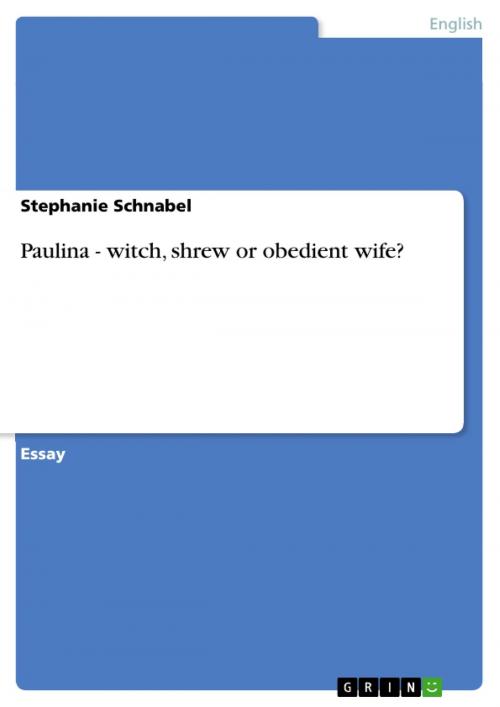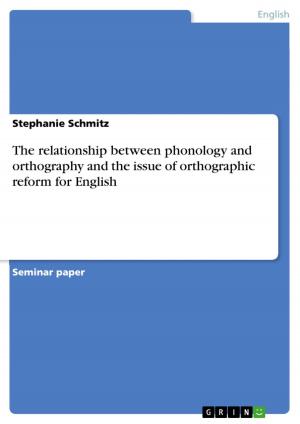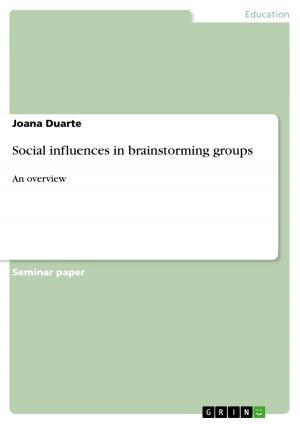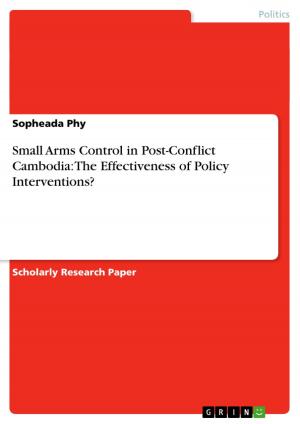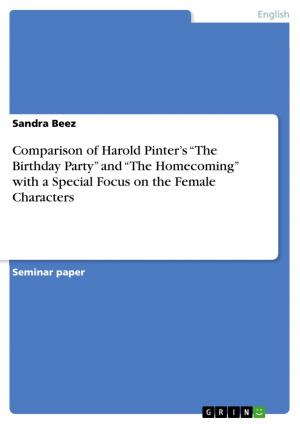Paulina - witch, shrew or obedient wife?
witch, shrew or obedient wife?
Fiction & Literature, Literary Theory & Criticism, British| Author: | Stephanie Schnabel | ISBN: | 9783638465779 |
| Publisher: | GRIN Publishing | Publication: | February 6, 2006 |
| Imprint: | GRIN Publishing | Language: | English |
| Author: | Stephanie Schnabel |
| ISBN: | 9783638465779 |
| Publisher: | GRIN Publishing |
| Publication: | February 6, 2006 |
| Imprint: | GRIN Publishing |
| Language: | English |
Essay from the year 2005 in the subject English Language and Literature Studies - Literature, grade: 68 von 80 (Grade B), Anglia Ruskin University (English Department), course: The Year of X - 1611: the year of the 'Tempest', 21 entries in the bibliography, language: English, abstract: In diesem Essay wird Paulina, eine Figur aus Shakespeares 'The Winter's Tale' kurz beschrieben und ihr Verhalten gegenüber den männlichen Figuren, insbesondere Leontes, analysiert. Sie ist nicht der typische Frauencharakter, den man erwarten würde. Die Gründe für diesen Eindruck werden hier nun näher beleuchtet. This essays deals with Paulina, a character in Shakespeare's 'The Winter's Tale'. Her behaviour towards the male figures is described shortly before her speech and interaction with the other characters, especially with Leontes, the King of Sicily, are analysed in depth. She is not 'the typical woman' and this essay tries to provide some possible reasons.
Essay from the year 2005 in the subject English Language and Literature Studies - Literature, grade: 68 von 80 (Grade B), Anglia Ruskin University (English Department), course: The Year of X - 1611: the year of the 'Tempest', 21 entries in the bibliography, language: English, abstract: In diesem Essay wird Paulina, eine Figur aus Shakespeares 'The Winter's Tale' kurz beschrieben und ihr Verhalten gegenüber den männlichen Figuren, insbesondere Leontes, analysiert. Sie ist nicht der typische Frauencharakter, den man erwarten würde. Die Gründe für diesen Eindruck werden hier nun näher beleuchtet. This essays deals with Paulina, a character in Shakespeare's 'The Winter's Tale'. Her behaviour towards the male figures is described shortly before her speech and interaction with the other characters, especially with Leontes, the King of Sicily, are analysed in depth. She is not 'the typical woman' and this essay tries to provide some possible reasons.
